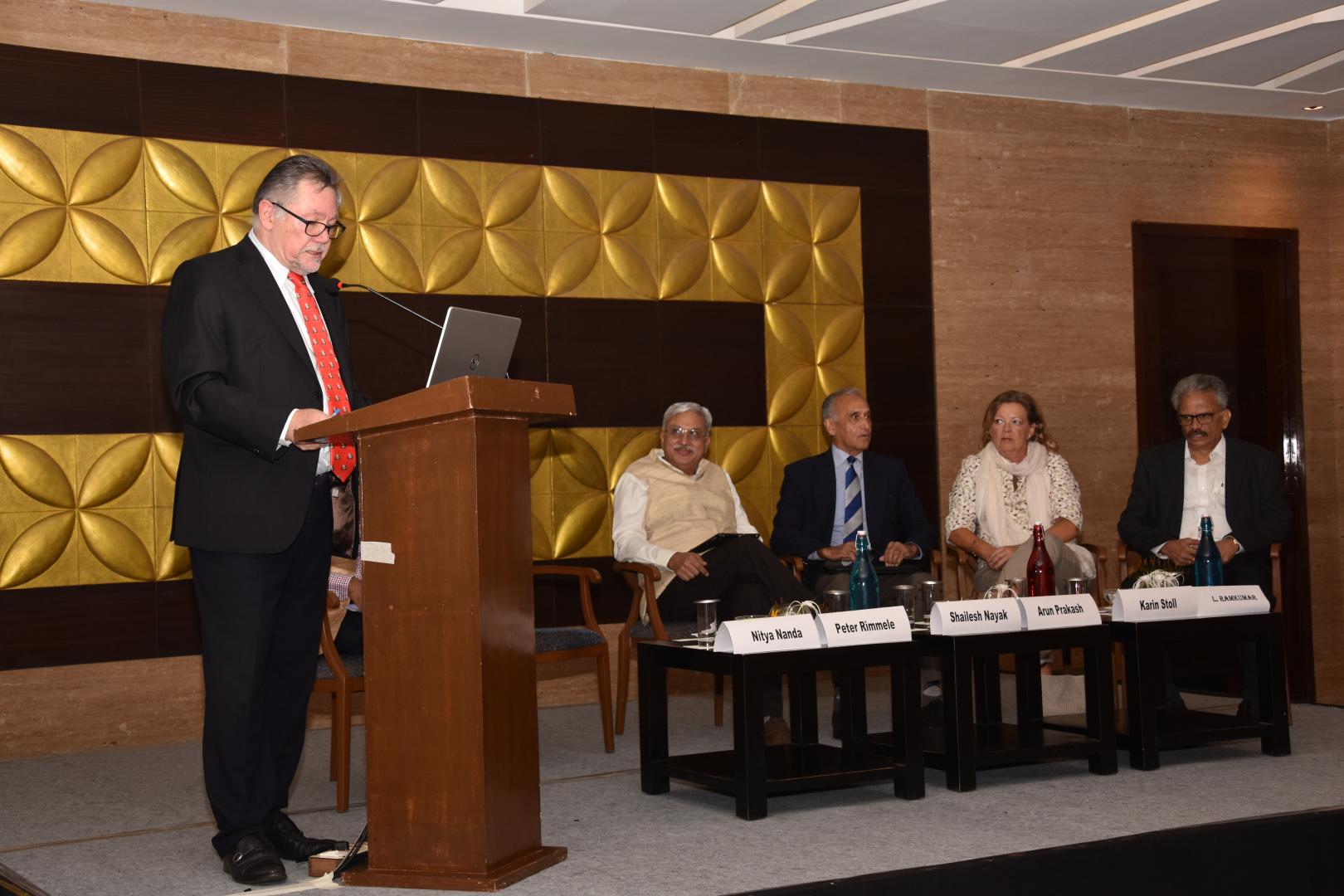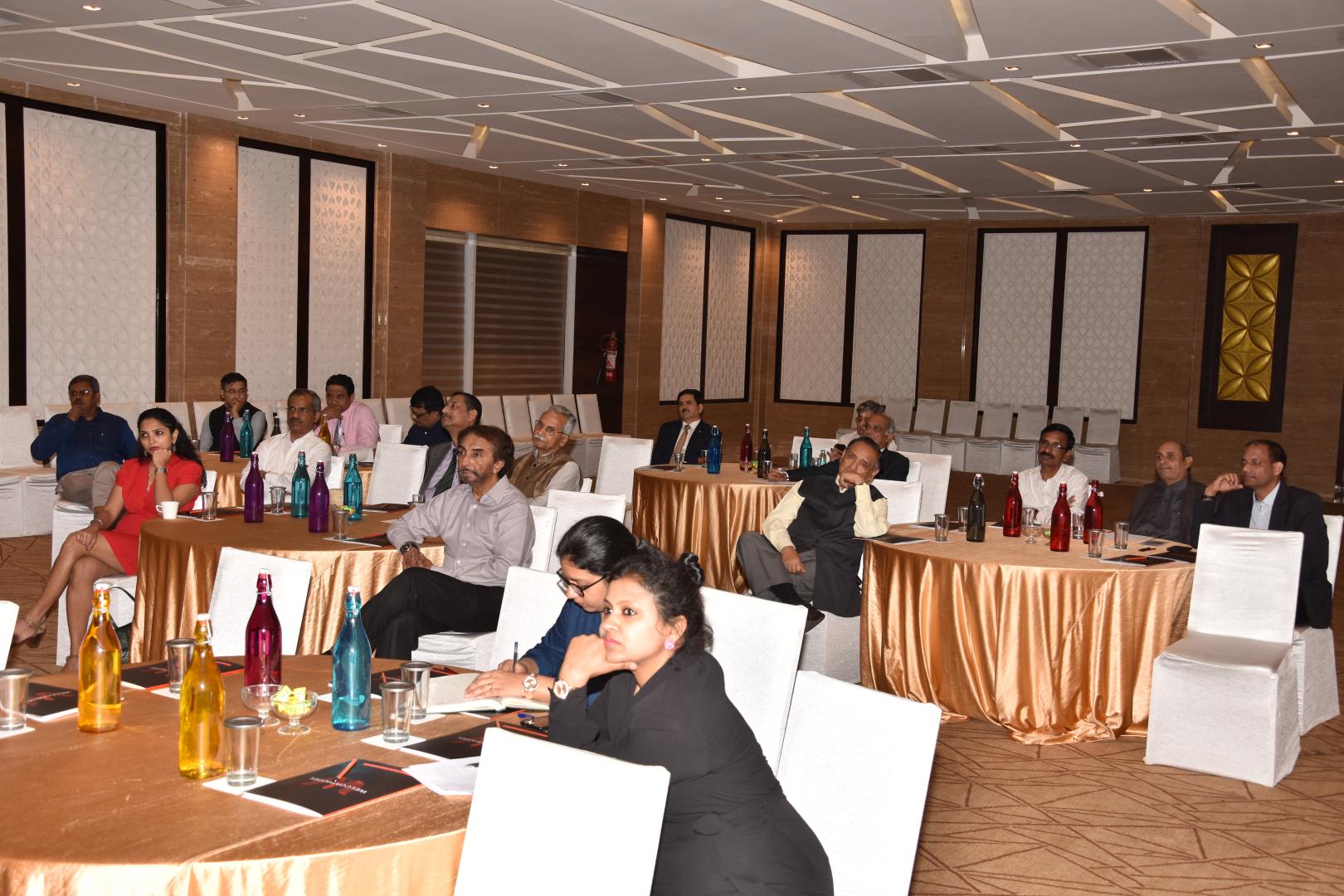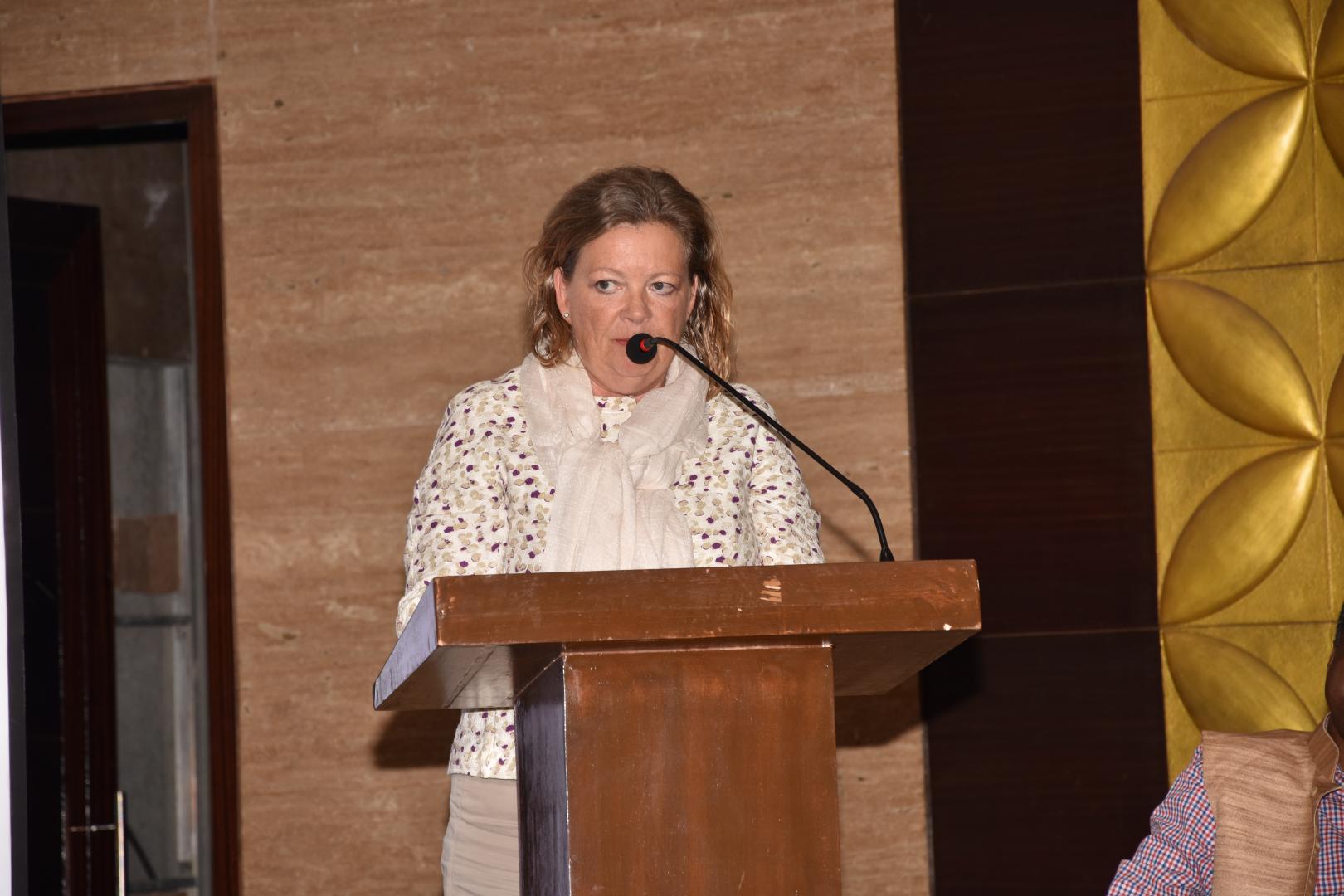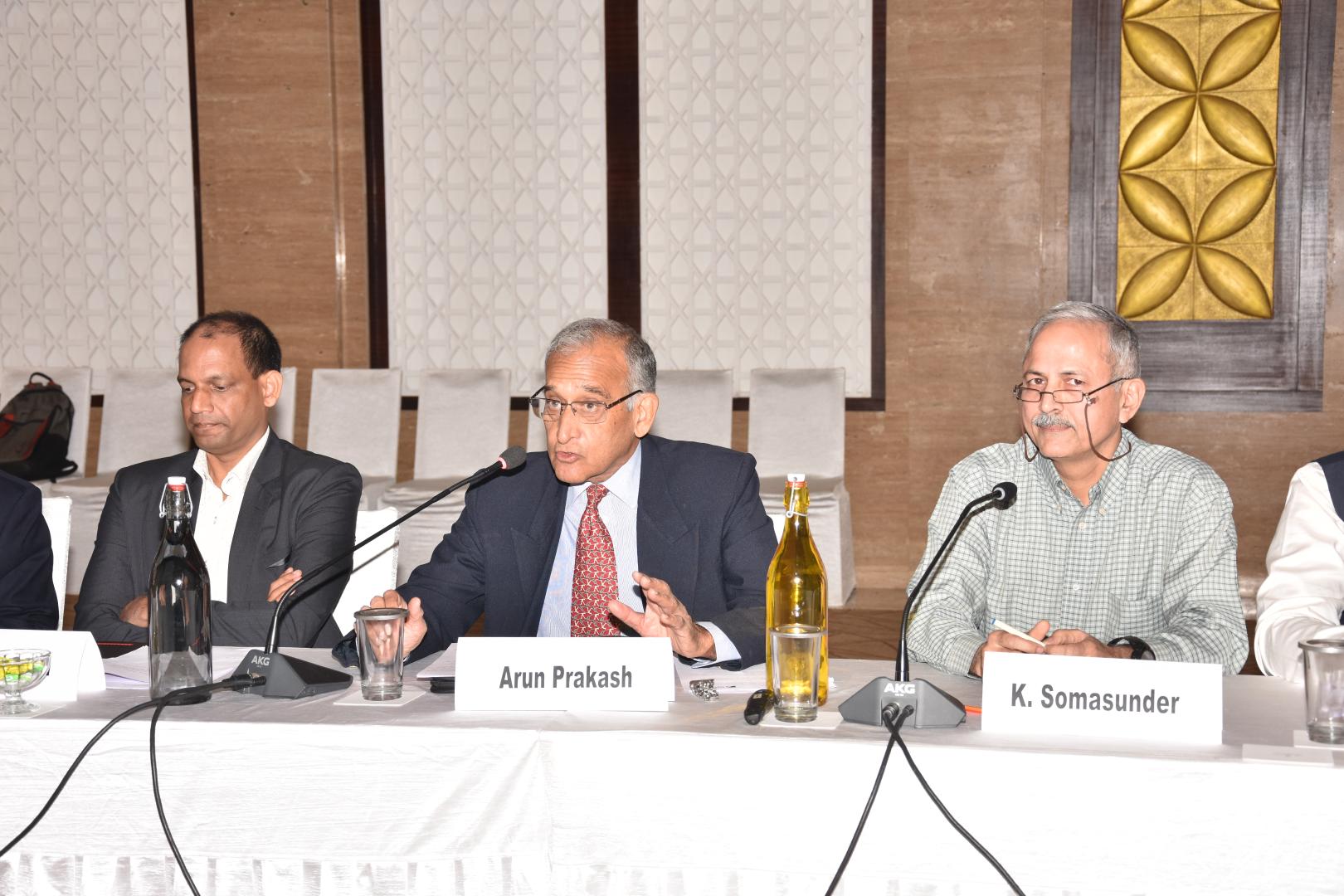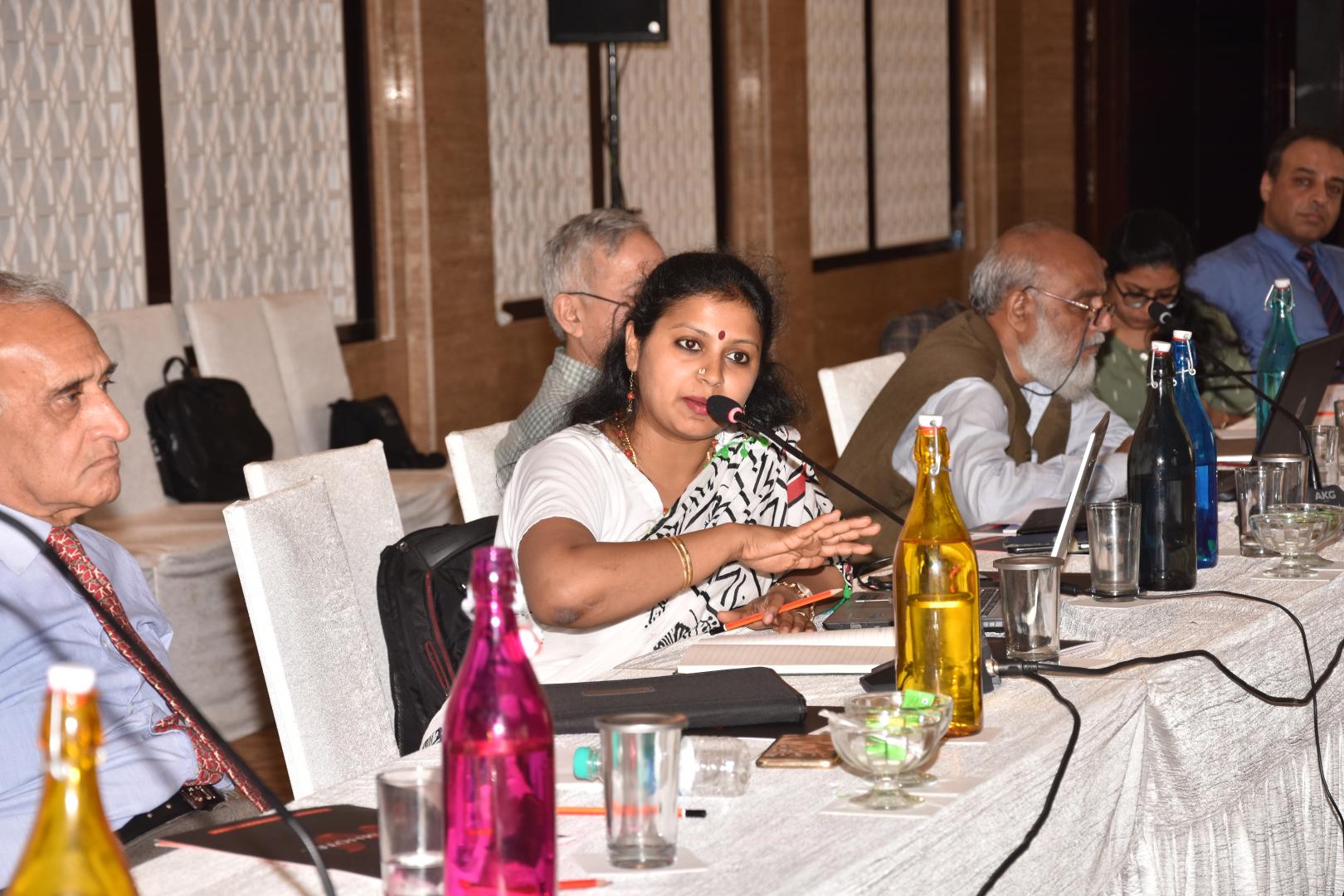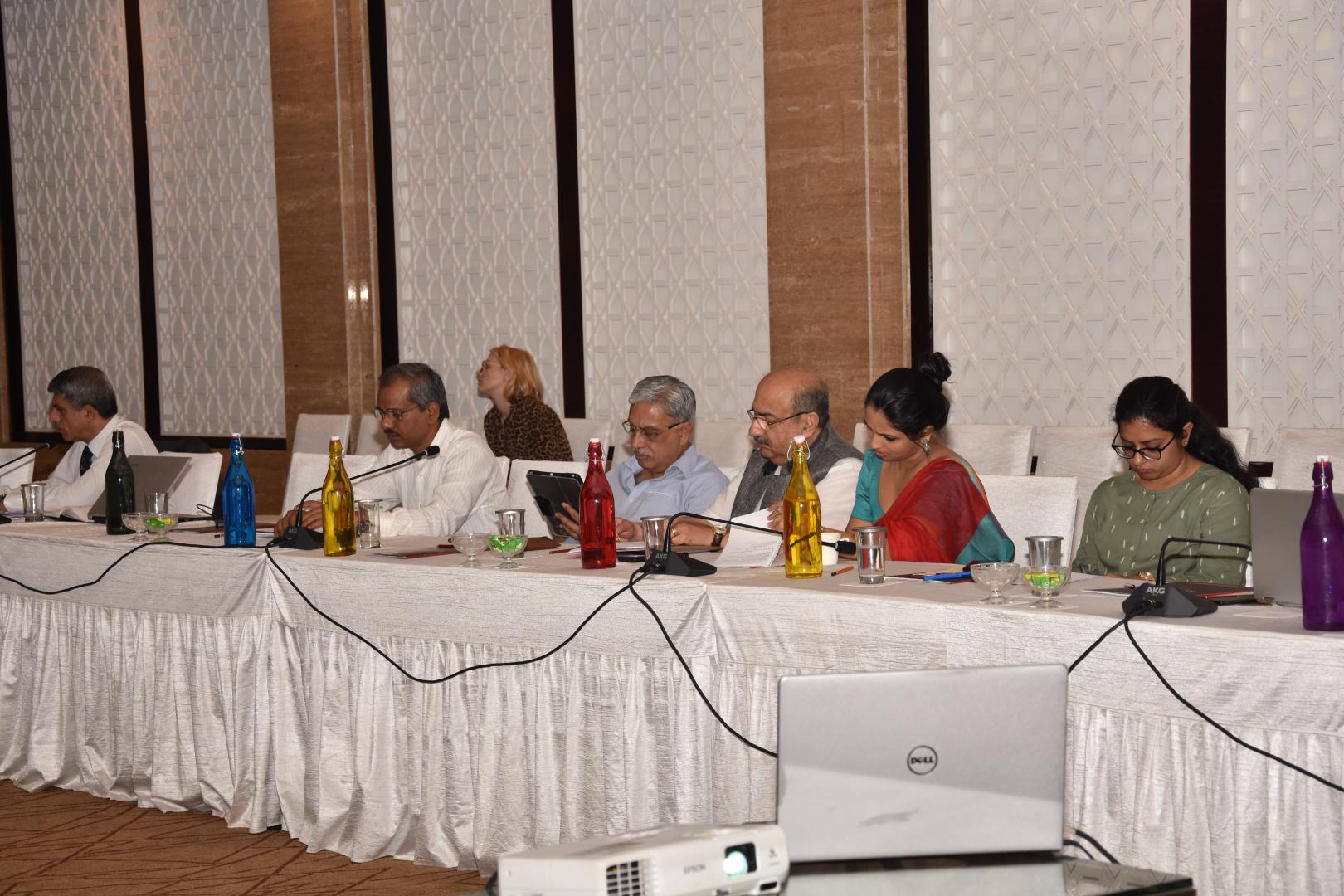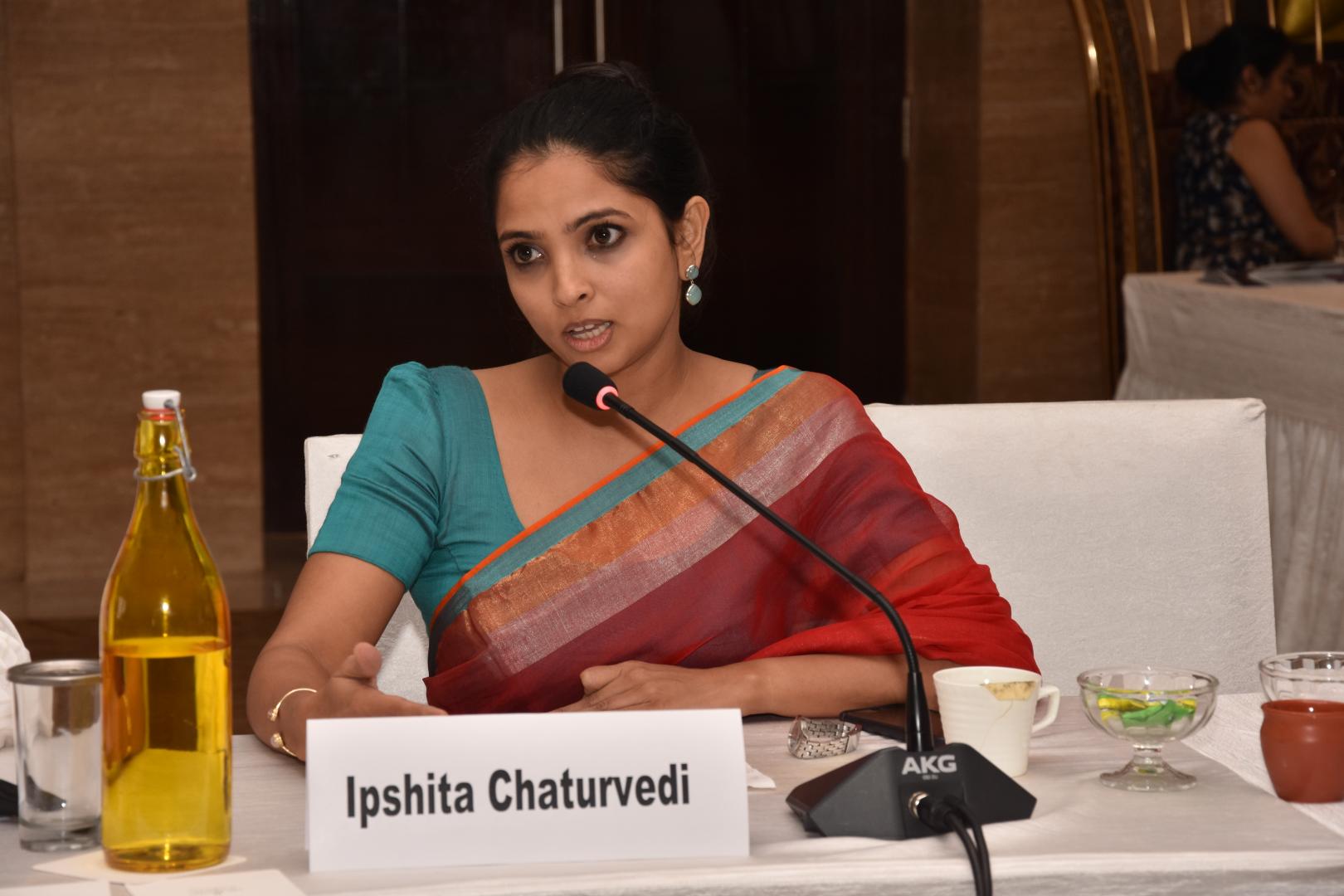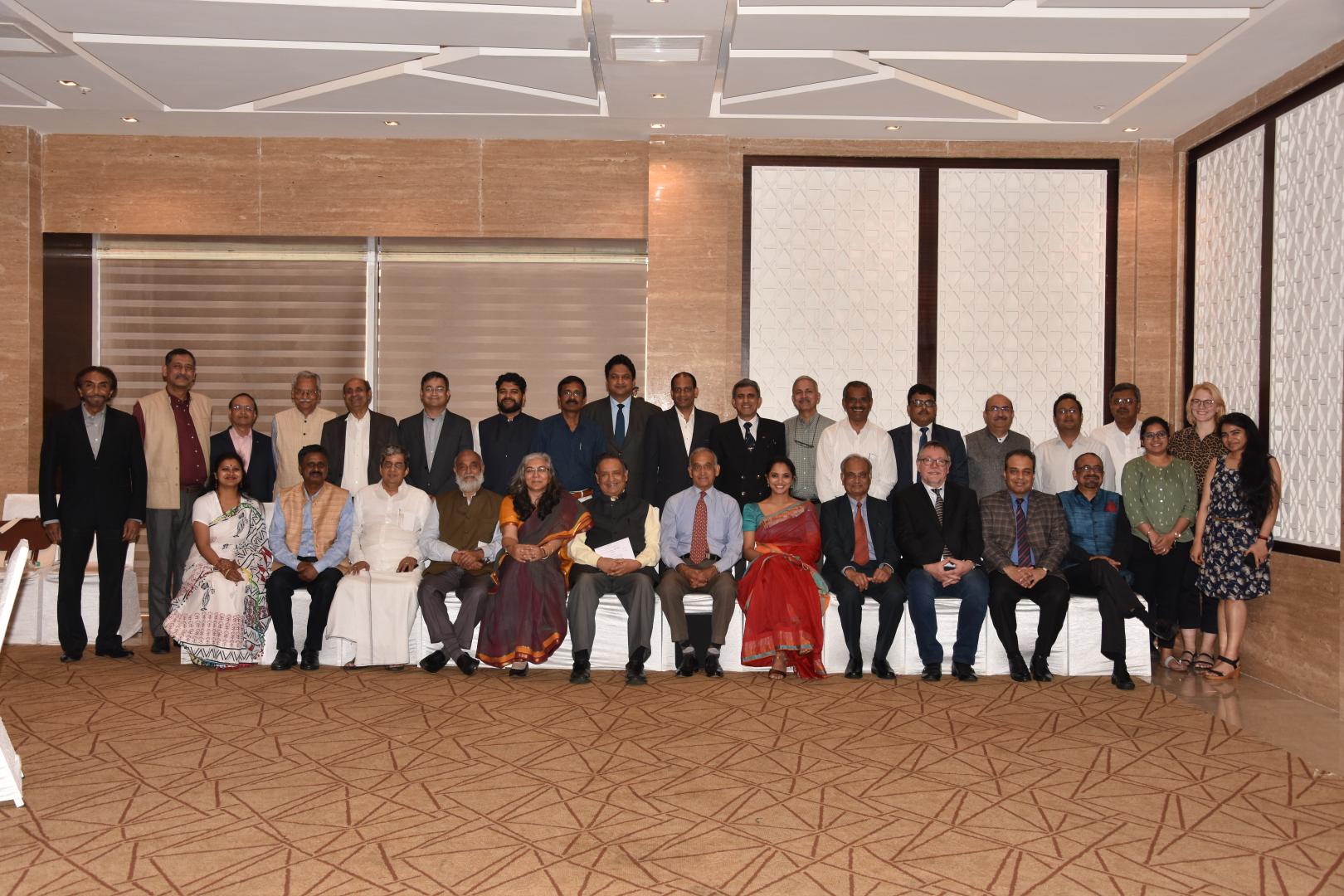Fifth Resource Dialogue on India's Maritime Security Strategy
During five sessions, the participants deliberated on various facets of India’s maritime strategy, ideas of an enhanced international governance mechanism for the high seas and a development of an advanced maritime security framework for India. In order to provide a variety of perspectives from all institutional stakeholders, speakers from think tanks, academic and scientific institutions, legal firms and government departments were invited.
During the inaugural session, the speakers gave a broad impression on the current maritime order which is not only determined by single nation’s pursuit of power, but even more by the ecological changes induced through global warming. Shailesh Nayak, National Institute of Advanced Studies and member of TERI Board, referred to the Arctic Ocean as learning object for the whole world, especially for India, even though the Indian subcontinent and the Arctic Circle are separated by thousands of miles. But it is there in the perpetually ice clad region that a declining biodiversity and ecological changes to the ecology become the most discernible, providing us with dire visions of the Indian-Ocean- Region (IOR) in the not-so-far-away future. India itself follows the concept of Blue Economy by “working with the Ocean”, as Arun Prakash, Former Chief of Naval Staff, Indian Navy and Distinguished Fellow, Delhi Policy Group, explained. Indians have a long tradition of living by the sea, drawing sustenance from it and building vessels to explore it. Being connected to the Indian Ocean like this, India has to shoulder its role of a powerful littoral state and secure the waters of the Indian Ocean.
Karin Stoll, Consul General at the German Consulate in Chennai, stressed the quest for an enhanced cooperation between India and the European states and pointed out the interdependence between economy and sea. Both the EU as well as India should take increasing advantage of their opportune access to the sea by boosting their trade cooperation, especially at this time where the EU has declared that it would facilitate and deepen cooperation with India as the number one partner in the Indo-Pacific-Region in the latest EU-strategy on India. Emphasizing the benefits of a multilateral global order, Ms. Stoll demanded that “No one shall repeat the mistakes of the past which is why the EU and Germany are striving for a multipolar world order.”
What are the global challenges that India is facing in the maritime domain? Fraddry D´Souza, TERI Goa, as well as Arun Prakash pointed towards the Sustainable Development Goals, authored by the United Nations, in guiding the handling of the oceans in a sustainable way. In the Anthropocene, the changes occurring in the seas and in the sea-beds are prone to worsen due to improper methods of human waste disposal that results in an increased amount of marine littering. What is more, the geopolitical complexity within the IOR calls for a common rules-based order that acknowledges the diversity of the littoral states and ensures their sovereignty as Krishnendra Meena from the Jawaharlal Nehru University explained.
During the second and third session, possibilities regarding “Economics of Marine resources” were discussed together with a governance strategy for the sea. S.K. Mohanty, of Research and Information System for Developing Countries, dwelled upon the options for India arising from blue trade under the Blue Economy framework. The full potential can only be exploited if the governmental institutions, departments and ministries start implementing Blue Economy measures on a national level. In the case of Arctic and Antarctic, a common legal framework is needed which regulates the claims staked by Russia, China, Norway and other nations. Being rich in resources, the Polar Regions are of high interest to any country striving for safeguarding its energy security. Simultaneously, the Arctic constitutes a beacon of global warming due to having the maximum exposure to climate change amplification and oscillation.
Finally, during the last two sessions, the speaker paid attention to the development of a maritime security strategy and the related security threats which were non-traditional in nature. A. Subramanyam Raju of Centre for Maritime Studies Pondicherry, asked for prospective maritime capacities in both soft and hard power while pointing out that India’s maritime force is only limited and – till date- cannot compete with other global powers, especially an increasingly aggressive China. In order to mitigate ecological changes to the Ocean, tackle food insecurity and fight off dangers from drilling in the seabed, action is needed- action which can only be initiated by raising awareness to the citizens and national leaders, was the analysis of P.K. Ghosh.
Lastly, India is in a very privileged position as the emerging power in the IOR. By acknowledging its strategic responsibility, the Indian government needs to develop a wholesome maritime strategy that counters strategic threats as well as ecological changes. In his concluding summary, Nitya Nanda of TERI, advocated multilateral action towards climate change issues and urged his fellow participants to push forward policy recommendations that had emerged from the conference and included concrete practical measures.
Topics
Provided by
Foundation Office India
About this series
The Konrad-Adenauer-Stiftung, its educational institutions, centres and foreign offices, offer several thousand events on various subjects each year. We provide up to date and exclusive reports on selected conferences, events and symposia at www.kas.de. In addition to a summary of the contents, you can also find additional material such as pictures, speeches, videos or audio clips.



